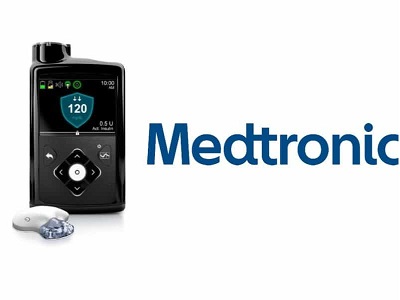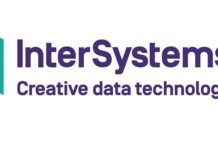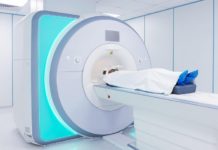Medtronic plc announced the U.S. launch of the MiniMed(TM) 670G system – the world’s first Hybrid Closed Loop system for people with type 1 diabetes. Featuring the company’s most advanced SmartGuard(TM) HCL technology and Guardian(TM) Sensor 3, it is the only insulin pump approved by the FDA that enables personalized and automated delivery of basal insulin, the background insulin needed to maintain stable blood sugar levels throughout the day and night.
The advanced SmartGuard HCL algorithm works in conjunction with the company’s most accurate sensor to date – Guardian Sensor 3 – to self-adjust basal insulin delivery every five minutes based on real-time needs. Through this personalized design, the system is able to maximize Time in Range – the amount of time sugar levels stay within a range considered healthy by clinical standards. The system also exclusively features the CONTOUR®NEXT LINK 2.4 blood glucose monitoring system (BGMS) from Ascensia Diabetes Care.
“The response from the diabetes community has been tremendously positive and we are proud to be leading this remarkable period in diabetes history in partnership with the clinical and advocacy communities,” said Alejandro Galindo, president of the Intensive Insulin Management division within the Diabetes Group at Medtronic. “We’ve essentially designed a smarter insulin pump that alleviates some of the burden associated with diabetes management, which can be unrelenting and exhausting. We are very excited to see that real-world insights from our Customer Training Phase reinforce the positive outcomes demonstrated through our pivotal trial of the system.”
Data from the pivotal trial of the MiniMed 670G system published in the Journal of the American Medical Association (JAMA) demonstrated less glycemic variability, more time in the target range, less exposure to hypoglycemia and hyperglycemia, and reduced A1c for patients on the system.1 Importantly, real-world use of the system in the Customer Training Phase has shown consistent improved outcomes across several important areas including Time in Range (74 percent) and greater median time in Auto Mode (92 percent).2 Real-world use of the Guardian Sensor 3 also demonstrates continued strong performance and reliability of the company’s most accurate sensor to date with a MARD of 10.56 percent against BG3 – confirming why it’s the only continuous glucose monitor trusted and approved by the FDA to power a hybrid closed loop system.
“This technology is a significant breakthrough for the diabetes community and as a practicing endocrinologist, I have been awaiting this moment on behalf of my patients for a very long time,” said Francine Kaufman, M.D., chief medical officer of the Diabetes Group at Medtronic. “The data demonstrating the benefits of this system are compelling and I’m confident it will simplify diabetes care for both patients and clinicians alike.”
Following the earlier-than-expected approval in September 2016, only 104 days after filing the PMA application, the company has been working to ensure payer coverage, market and manufacturing readiness, as well as appropriate training of employees, clinicians, educators and patients on the new system. A Customer Training Phase was initiated in March to validate the comprehensive onboarding and training program customized for the MiniMed 670G system across a select number of sites in the U.S. before launching it more broadly.
Following excellent feedback on system performance, clinical outcomes and user experience in the Customer Training Phase – including a 94 percent overall satisfaction rate with the training and onboarding – the company is now ready to initiate a broader commercial launch. Medtronic will now onboard the rest of those enrolled in the Priority Access Program who signed up to be first in line to receive the system upon commercial launch. These orders will begin to ship next week and will continue to be fulfilled over the next few months into the fall of 2017. In parallel, Medtronic will now take new orders from interested customers who want to be next in line to receive the system after Priority Access orders are fulfilled. To be placed in the order queue, customers can call a Medtronic representative at 1.800.646.4633 or visit http://bit.ly/2qLNCoA.
“The MiniMed 670G system has given me the confidence to manage my diabetes more independently, which is exciting for me as I finish my freshman year of high school and realize that it will be a short time before I get ready to go away to college,” said Claire Bickel, a 14 year old who has been living with type 1 diabetes for 10 years. “This system gives me the freedom to focus on the many priorities I need to juggle in my life like field hockey, my school musical, spring track and schoolwork because I know it’s taking care of me while I focus on these activities.”
“The MiniMed 670G system has proven to be life-changing for many patients who participated in the Customer Training Phase and we are truly excited to be able to introduce it to many more who stand to benefit,” said Jennifer Lynn Sherr, M.D., Ph.D., assistant professor of endocrinology at the Yale School of Medicine. “We’ve seen this system positively impact not only patients like Claire, but also their caregivers who are experiencing a new sense of security. The constant vigilance that this chronic medical condition imposes on both patients and their families is now relaxed and caregivers have a new level of independence and freedom. As someone who lives with type 1 diabetes, it’s exciting to see this innovation alleviate much of the burden of managing this chronic disease.”
The MiniMed 670G system is powered by the company’s most advanced algorithm to date – SmartGuard HCL – and the new Guardian Sensor 3, featuring enhanced accuracy and performance with up to 7-day wear. The system is FDA approved for people with type 1 diabetes ages 14 years and older. Prescription Required. WARNING: May not be safe for under age 7 or using less than 8 units insulin/day. See http://bit.ly/670gRisks.
About Type 1 Diabetes (T1D)
An estimated 1.25 million Americans live with T1D in the United States. T1D is an autoimmune disease in which a person’s pancreas stops producing insulin. It can impact both children and adults at any age and causes dependence on multiple daily injections of insulin or an insulin pump. The complications stemming from high and low blood sugar levels can lead to serious short and long term complications including kidney failure, blindness, nerve damage, heart attack, stroke, and pregnancy complications. Lows can be life-threatening, particularly at night when they are most difficult to manage. T1D significantly impacts quality of life and is associated with an estimated loss of life-expectancy of up to 13 years.4 Despite this, less than one third of people with T1D in the U.S. are achieving target blood glucose control levels.
Medtronic is working together with the global community to change the way people manage diabetes. The company aims to transform diabetes care by expanding access, integrating care and improving outcomes, so people living with diabetes can enjoy greater freedom and better health.
About Medtronic
Medtronic plc (
www.medtronic.com), headquartered in Dublin, Ireland, is among the world’s largest medical technology, services and solutions companies – alleviating pain, restoring health and extending life for millions of people around the world. Medtronic employs more than 88,000 people worldwide, serving physicians, hospitals and patients in approximately 160 countries. The company is focused on collaborating with stakeholders around the world to take healthcare Further, Together.
Any forward-looking statements are subject to risks and uncertainties such as those described in Medtronic’s periodic reports on file with the Securities and Exchange Commission. Actual results may differ materially from anticipated results.
1 Bergenstal RM, Garg S, Weinzimer SA, et al. Safety of a hybrid closed-loop insulin delivery system in patients with type 1 diabetes. JAMA. Published on-line ahead of print September 15, 2016 at jama.com (Online First).
2 Data on file.
3 Results compared with capillary blood glucose results using a blood glucose meter. Results compared to YSI (Yellow Springs Instruments, Yellow Springs, OH) typically yield results that are 1-1.5 percentage points lower.
4 Jama 2015; 313(1):1-9)
Contacts:
Janet Kim
Public Relations
+1-818-576-5014
Ryan Weispfenning
Investor Relations
+1-763-505-4626





















